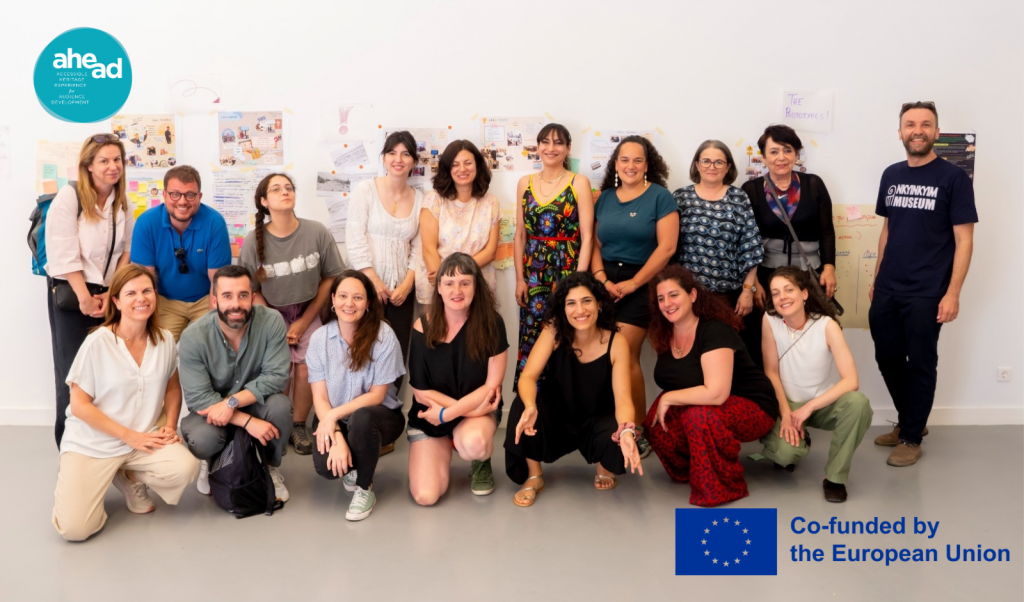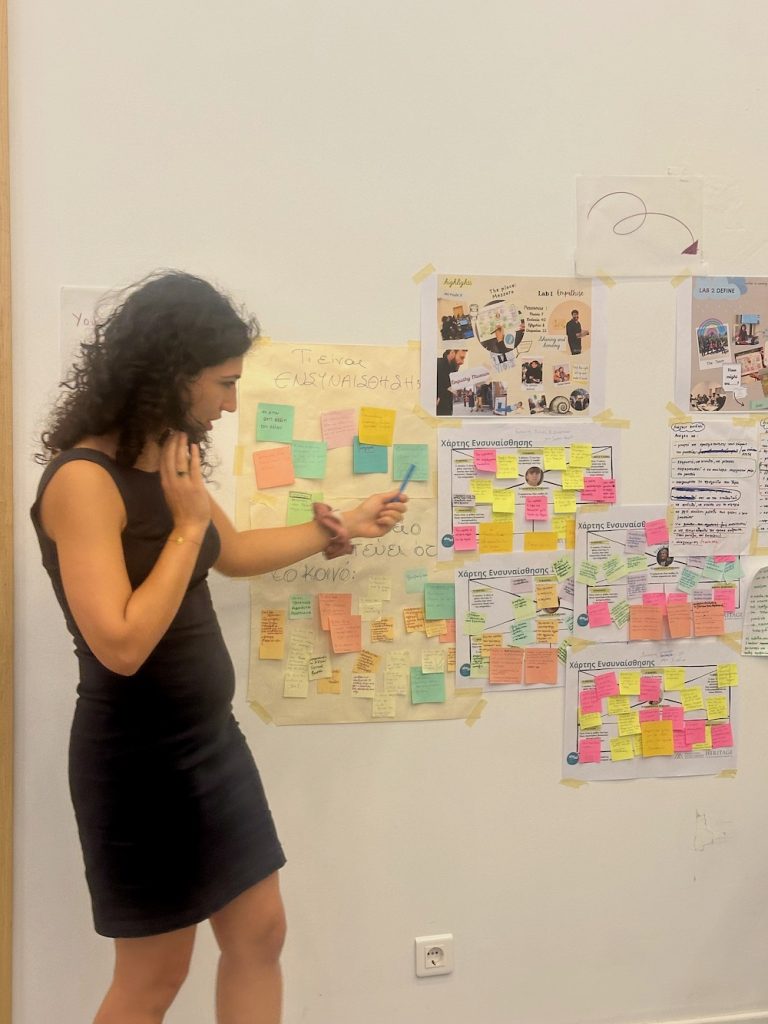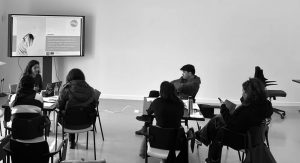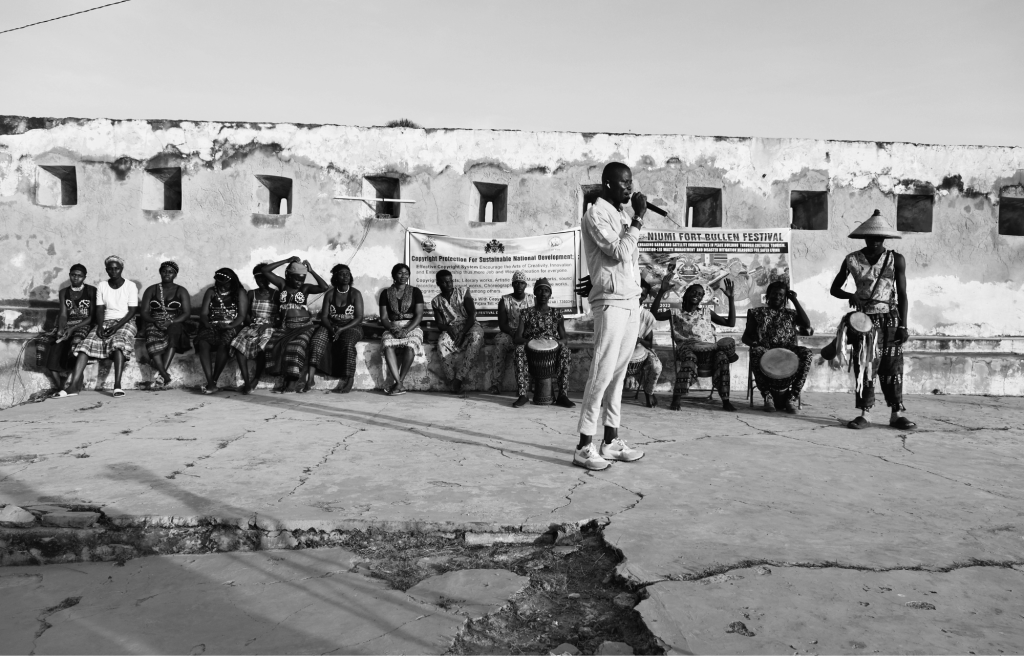Tag Archives: community engagement
HERITΛGE Launches Online Winter School
The Heritage Management Organization (HERITΛGE) is proud to announce the launch of its Winter School, an intensive online program dedicated to Engaging Communities in Cultural Heritage. Running from 26 January to 8 February 2026, this new training initiative builds on the success of HERITΛGE’s established training formats—its introductory 3-day workshop and its immersive summer field school.
As Foteini Giannoulidi, head of HERITΛGE’s Educational Department, explains, “our proudly launched Winter School serves as an intermediate training program between our workshops and our intensive Summer Field School. It is designed for heritage managers who seek a profound approach to community engagement in a remote format, offering the opportunity to complete an extensive, in-depth training program.”
Community engagement has become one of the most important and dynamic areas in heritage management. Around the world, museums, archives, cultural institutions, and local organizations increasingly recognize that meaningful engagement cannot rely on generic “toolkits.” Sustainable and ethical collaboration requires sensitivity to local contexts, awareness of community values, and approaches grounded in shared authority and co-creation.
The Winter School embraces this perspective. It offers a research-led, community-centred framework shaped by HERITΛGE’s extensive practical experience in Europe, Africa, and beyond. Participants will explore the principles and ethics of community engagement while developing practical skills such as applied ethnography, long-distance interviewing, digital documentation of personal and material heritage, collaborative storytelling, and interpretive planning. The program also examines how festivals, artistic practices, and community-driven initiatives can act as powerful platforms for participation and representation.
The course will be taught by Dr Aris Anagnostopoulos and Dr Lena Stefanou, with guest contributions from HERITΛGE Director Dr Evangelos Kyriakidis—a team bringing decades of experience in participatory research, community partnerships, heritage interpretation, and cultural practice.
This Winter School is designed for museum and heritage professionals, cultural managers, researchers, community organizers, and practitioners working in related fields such as archaeology, public history, archives, and tourism. Participants from all regions are welcome, and a strong command of English is required.
Applicants are invited to submit an online application. Those shortlisted will be contacted for a brief interview. Because places are limited, early application is strongly recommended.
Summer Field School in Community Engagement for Cultural Heritage
This summer, HERITΛGE’s 11th Engaging Communities in Cultural Heritage Summer School brought together students, researchers and practitioners from around the world for two weeks of learning, discovery and collaboration. Through a range of activities, participants explored how communities engage with cultural heritage through a mix of academic sessions, practical fieldwork and creative activities.
The first week of the programme involved online teaching where participants were introduced to the ideas of engaging communities. Then, from June 23rd to July 6th, participants travelled to the Island of Paros where they were able to further explore what they had learned. Here is a look back at how it went.
Day 1: Mapping First Impressions
The in-person programme began in Paroikia, the island’s capital. After an introductory session, participants stepped out to create personal maps of the area using their senses as guides. In a group discussion, they shared first impressions and identified key questions to explore in the days ahead.
In the evening, the group travelled to Aliki to join the Klidonas midsummer festival. Music, dancing and lively conversation provided a first opportunity to connect with the local community and one another.
Day 2: Sensing the Island
Participants deepened their exploration by tuning into the sensory dimensions of Paroikia, focusing on its sounds, smells, textures and colours. Later, they collaborated on a collective mental map that reflected both individual and shared perspectives.
The day ended with a welcome dinner by the coast, accompanied by traditional music and conversation.
Day 3: Observation and Oral History Skills
Having become more familiar with the environment, participants focused on specific locations of interest, blending observation with active participation.
A hands on session introduced tools and techniques for conducting oral history interviews, with a focus on audio and video recording.
Day 4: Learning from the Locals
The group met with Spyros Mitrogiannis, a leading figure in local cultural work, who guided a visit to the Institute for Archaeology of Paros and the Cyclades. He shared insights into the cultural, environmental and political landscape of the island.
In the afternoon, participants examined themes such as ancient quarrying, fishing traditions and contemporary religious practices, laying the groundwork for their field research.
Day 5: Stories from Afar and At Home
Two guest speakers enriched the day’s programme. In the morning, Traci Kawai presented the Fisher Child project from Cape Town, a VR and AR exploration of sea, memory and healing.
In the evening, Katerina Konstantinou shared her research on folklore and local material culture, examining how heirlooms and souvenirs shape participatory documentation.
Between sessions, teams continued developing interview guides in preparation for community engagement.
Day 7: Walking the Paths of Heritage
In northern Paros, participants met Malatestas, President of Paros Park, who spoke about the challenges of heritage management and local involvement. A walk through the park’s trails highlighted the close ties between landscape and culture.
The day concluded with a beautiful sunset watched from the beach.
Day 8: Festivals and Tourism
The day focused on festivals as expressions of identity. Vicky Papadimitriou shared her experience with local, regional and national events, while Tim Healing offered case studies on community tourism and sustainability, prompting thoughtful discussion on responsible development.
Participants also used the day to refine their ongoing projects.
Day 9: Stories Set in Stone
The morning opened with discussions about interviews already carried out, ranging from fishing traditions to quarrying and religious offerings.
In the evening, Spyros Mitrogiannis led a visit to the Ancient Marble Quarries at Marathi, offering historical context and highlighting present day challenges around preservation.
Day 10: Visual Identity and Storytelling
Participants continued reviewing interview materials and shaping their group projects. In the afternoon, Irene Biza led a session on design and identity, exploring how visuals influence perceptions of place.
The day concluded with a screening of Yorgos of Kedros, a documentary that sparked reflection on storytelling and self representation.
Days 11 and 12: Final Preparations and Reflections
As the public presentations approached, teams worked to analyse ethnographic data and create podcasts, videos and visual materials.
Participants also attended a lecture by visual artist Natassa Biza, who offered new insights into ancient spolia around Paroikia, challenging conventional perceptions of historical remnants.
The final day was dedicated to collaboration, as teams prepared their presentations to the local communities and reflected on their shared journey.
Online Conference and Presentation
The field school concluded with the Online Engaging Communities Conference on Sunday, July 6th, where participants shared their insights and creative outputs with an international audience. This event was exclusively available to our trainees and alumni and included presentations and insights from the Summer Field School Alumni who shared their current research projects, sparking an engaging session enriched with thoughtful discussions and commentary.
Following the conclusion of the Conference, the trainees organized a presentation of their work that was open to the public and was widely attended. The presentation took place in the Dimitrokopoulos Building in Paroikia, with the kind support of the Municipality of Paros. During this second part of the evening, participants had the opportunity to share insights from our two weeks of fieldwork with attendees interested in their work.
“After days filled with collective challenges and individual discoveries, often marked by the initial confusion that is so characteristic of ethnographic research, this final presentation felt like both a validation of our efforts and an affirmation of our growing professional identities,” reflects trainee Claudia Valisano. “Beyond that, the event also had the potential to spark fresh interest among local residents in the island they call home, renewing awareness both for them and for us. Once all speeches were delivered and questions from the audience were addressed, guests were invited to enjoy food and drinks on the building’s beautiful terrace.”
You can find out more about our Summer School programmes and future dates here.
From Memory to Momentum: AHEAD Study Visit in Crete
From May 21st to 23rd, 2025, HERITΛGE and the Archaeological Museum of Mesara welcomed partners from across Europe for the second international AHEAD project Study Visit, a key milestone in the project’s mission to foster innovative, audience-centred cultural experiences. The three-day gathering hosted by the Museum (the project’s Greek Hub), proved a dynamic space for reflection, testing, and exchange of ideas across borders and communities.
The AHEAD team along with local heritage professionals and Elektra Angelopoulou – the artist selected to co-create work for the Greek hub- worked to validate and give feedback on the prototypes developed through the AHEAD methodology — a process designed to help cultural institutions understand their audiences, co-create with them, and embed those practices into their operations.
Two Prototypes, Two Publics
The Greek Hub focused on two distinct but equally vital local audiences: children and adults, engaging each group in a meaningful journey through AHEAD’s empathise–define–ideate–prototype–test framework.
Prototype I: Children’s Voices in the Museum
HERITΛGE and the Museum partnered with two local primary schools to involve young learners in the creative process. With the participation of artist/performer Elektra Angelopoulou, and through structured activities aligned with the AHEAD methodology, the children explored the museum’s collection and selected their favourite objects.From these choices, the children developed their own narratives — imaginative stories, reflections, and personal interpretations inspired by the artefacts.
In centering children’s voices, the museum embraces storytelling not just as education, but as connection — bridging past and present through creativity, wonder, and the eyes of a new generation.
Prototype II: Community, Connection, and Co-governance
In parallel, HERITΛGE invited local adults to participate in a series of reflective workshops, beginning with the sharing of memories, lived experiences, and deep-rooted connections to the Messara landscape — a place where archaeology, history, and daily life are inextricably linked.
These sessions revealed a strong sense of local pride, but also a disconnect: many felt the museum, though geographically close, was distant in spirit — shaped by state institutions without enough input from those who live nearby. In response, the prototype developed with this audience is the creation of a “Friends of the Museum of Mesara” Association.
This initiative aims to:
– Strengthen community engagement with the museum
– Amplify local voices in decision-making processes
– Support the museum’s role in driving tourism and sustainable local growth
– Provide a formal channel for co-creating future experiences and exhibitions
From Testing to Transformation
Both prototypes were presented to AHEAD consortium members during the Study Visit. Feedback sessions, held at the Archaeological Museum and visits to the area and its archaeological sites Gortyna and Phaistos, allowed partners to gain and exchange insights, and consider how these approaches might be adapted across other contexts.
The feedback underscored the importance of:
- Deep listening and long-term community involvement
- Rethinking traditional exchanges between museums and local communities
- Fostering sustainable links between heritage, education, and local development
- Working with the AHEAD methodology and returning to it as often as necessary throughout the lifetime of a project.
The prototypes — still in development — will be officially launched in September 2025, during a dedicated event that will also feature a site-specific performance by Elektra Angelopoulou, created in collaboration with the Mesara community.
Looking Ahead
This second Study Visit demonstrated the power of co-creation, memory, and local agency in shaping meaningful cultural heritage experiences. By validating the Greek Hub’s work and drawing lessons from the field, partners left Messara not only inspired, but equipped with ideas they could bring back to their own communities.
Next up for AHEAD: Study Visit 3 in Altamira, Spain — where a new chapter of audience-centred innovation is already unfolding.
AHEAD is co-funded by the European Union. To learn more about the AHEAD methodology or how to join the AHEAD network visit the project website and explore the learning resources, manifesto, and upcoming events.
Ενεργοποίηση Κοινοτήτων: Υποτροφίες για το Θερινό Σχολείο στην Πάρο
Ανακοίνωση Υποτροφιών για το Θερινό Σχολείο «Ενεργοποίηση Κοινοτήτων στην Πολιτιστική Κληρονομιά» στην Πάρο
Ο οργανισμός HERITΛGE (Πρωτοβουλία για την Ανάδειξη της Πολιτιστικής Κληρονομιάς), στα πλαίσια της συμμετοχής του στο Δίκτυο Ζώσας Πολιτιστικής Κληρονομιάς, ανακοινώνει την προκήρυξη δυο υποτροφίων για τη συμμετοχή στο Θερινό Σχολείο “Ενεργοποίηση Κοινοτήτων για την Πολιτιστική Κληρονομιά”.
Οι υποτροφίες απευθύνονται σε επαγγελματίες ή ενεργούς πολίτες που δραστηριοποιούνται στη διαχείριση και ανάδειξη της πολιτιστικής και καλύπτουν τα δίδακτρα του θερινού σχολείου. Η διαμονή και η σίτιση των συμμετεχόντων δεν καλύπτεται. Οι εκπαιδευτικές δραστηριότητες του θερινού σχολείου πραγματοποιούνται στα Αγγλικά.
Η μία εκ των υποτροφιών, η οποία προκηρύσσεται σε συνεργασία με τον Δήμο Πάρου, απευθύνεται σε επαγγελματίες ή ενεργούς πολίτες που δραστηριοποιούνται στη διαχείριση και ανάδειξη της πολιτιστικής κληρονομιάς και κατοικούν ή έχουν ισχυρούς δεσμούς με το νησί της Πάρου.
Ημερομηνίες Σχολείου:
• 15–22 Ιουνίου: Διαδικτυακή εκπαίδευση
• 23 Ιουνίου – 6 Ιουλίου: Διά ζώσης εκπαίδευση στην Πάρο
Το πρόγραμμα πραγματοποιείται με την υποστήριξη του Δήμου Πάρου, ο οποίος προσφέρει τη χρήση της αίθουσας Δημητρακόπουλου στην Παροικιά και της Δημοτικής Βιβλιοθήκης.
Κατά τη διάρκεια του θερινού σχολείου, οι συμμετέχοντες θα εκπαιδευτούν σε θεωρητικό και πρακτικό επίπεδο μέσα από διαδικτυακά σεμινάρια και επιτόπια συμμετοχική έρευνα στο πεδίο. Θα εξετάσουν καλές πρακτικές στην ανάδειξη της πολιτιστικής κληρονομιάς και θα ανταλλάξουν εμπειρίες με ειδικούς από όλο τον κόσμο.
Καταληκτική ημερομηνία υποβολής αιτήσεων:
Κυριακή 15 Ιουνίου 2025, ώρα 12:00 μ.μ.
Για να υποβάλετε αίτηση ή να ενημερωθείτε, επισκεφθείτε το https://heritagemanagement.org/training/summer-schools/engagingcommunities/
AHEAD in Crete: Community Stories, Creative Sparks, and New Visions for Heritage Engagement
In February 2025, Crete became a vibrant hub for cultural dialogue and creative collaboration through two dynamic AHEAD project activities: the AHEAD Talk at the Archaeological Museum of Mesara and the third AHEAD Lab, held as part of our ongoing mission to foster accessible and participatory heritage experiences.
HERITΛGE is proud to be an active member of AHEAD (Accessible Heritage Experience for Audience Development), a project funded by the European Union’s Creative Europe initiative to give heritage managers the skills and knowledge to held their institutions generate economic sustainability and local growth while widening access and participation to new audiences and local communities.
AHEAD Talk: Memory, Meaning, and Messara’s Cultural Wealth
On February 14th, the Archaeological Museum of Mesara that serves as the project’s Greek Hub opened its doors to a diverse group of heritage professionals, educators, community members, and local stakeholders for the AHEAD Talk. Hosted by HERITΛGE and supported by the AHEAD consortium, the event focused on cultural heritage engagement and audience development, with a spotlight on the unique cultural landscape of Mesara.
Speakers included Aris Anagnostopoulos and Roula Gkika from HERITΛGE, artist Elektra Angelopoulou (who has been selected to co-create a piece of work for the Greek hub in collaboration with local communities, Antonis Papadakis from the Archaeological Museum of Mesara, and local educator Nikos Andreadakis. Speakershared inspiring insights on:
-
The aims and impact of the AHEAD initiative
-
Strategies for community-driven heritage projects
-
Art as a connector between archaeological sites and the public
-
Public archaeology and the use of comics for storytelling
-
Transforming museums into interactive, child-friendly spaces
Beyond the formal presentations, the event came alive through the audience’s contributions—personal stories and heartfelt memories of Mesara’s rich heritage that resonated deeply with all present. The talk fostered meaningful exchange, laying the groundwork for future collaboration between institutions and communities across Crete.
AHEAD Lab 3: Ideate! A Creative Leap in Audience Engagement
In parallel, Mesara also hosted the third AHEAD Lab, titled Ideate! that focused on reimagining how audiences interact with cultural heritage. Building on the themes raised during the Talk, the Lab brought together artists, archaeologists, educators, and local residents for a series of hands-on workshops and co-creation sessions.
Participants explored new methods of engaging audiences—especially young people—through artistic interpretation, participatory storytelling, and site-specific installations. The lab not only generated creative outputs but also deepened local involvement, highlighting the power of collaborative design in shaping inclusive cultural experiences.
Together, the AHEAD Talk and Lab in Crete demonstrated the transformative potential of dialogue, memory, and creativity in heritage work. By listening to communities and co-creating new forms of engagement, AHEAD continues to push the boundaries of how we connect with the past—and with each other.
Find out more about AHEAD on the project’s website.
Engaging Communities in Cultural Heritage Workshop
Over three days in October, fifteen heritage professionals joined our online workshop to learn more about engaging communities in heritage. Community engagement is one of the key strategies in heritage management and allows
HERITΛGE’s Aris Anagnostopoulos and Eleni Stefanou along with the Organization’s Director, Evangelos Kyriakidis, led the workshop, each working with participants on a different section and drawing on case studies from participants’ own work.
After an introduction into how local perspectives are essential in heritage conservation, participants explored the idea of values and examined how the values tied to heritage by the local community make these communities essential stakeholders in safeguarding the knowledge and importance of heritage sites. Over the course of the workshop, participants also learned techniques for engagement through ethnographic research, values identification, collaborative design and representation of the whole community, looking at case studies from around the world and in different types of sites.
“What I liked most about this course was how it showed the importance of involving communities in preserving heritage,” said eter Adewale Jegede, Curator at Nigeria-based On Your Mark. “I now have a better understanding of how to build trust, encourage collaboration, and ensure that heritage initiatives are inclusive and sustainable. This knowledge will help me design projects that respect community perspectives and create stronger connections between people and their cultural heritage.”
Ibrahim Hassan Gafar Ali Fadolr, Director at University of Nyala Centre for Darfur Heritage said that “Major benefits of this training course shall be used in better planning, implementation and review of performance in dealing with communities with different backgrounds, cultures and linguistic variances. ”
“We were lacking skills of how to bring communities at odd to work jointly together to achieve success on behalf of everyone,” he added.
HERITΛGE offers regular 3-day workshops on Community Engagement in Cultural Heritage, as well as an annual Summer Field School, held in Greece and online.








